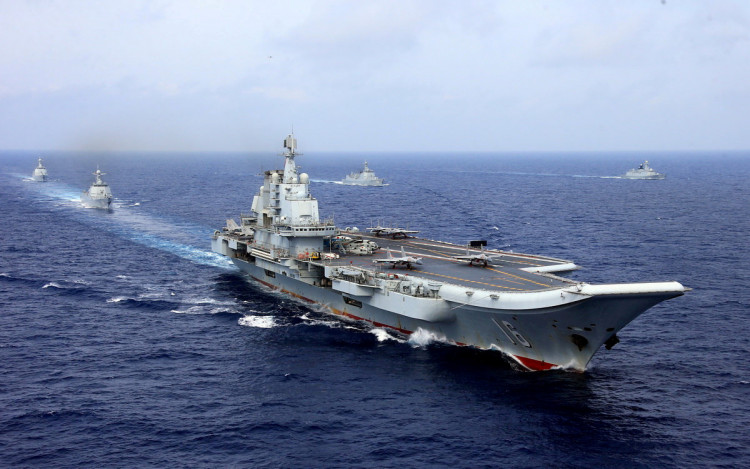Already the world's largest navy in terms of fleet size, the People's Liberation Army Navy (PLAN) nonetheless remains an isolated force unable to launch and sustain combat operations in far seas due to a crippling dearth of allies and overseas naval bases.
These glaring weaknesses are the greatest drawbacks bedeviling the PLAN and will constrain and complicate its global expansion. It also makes PLAN easy prey for the U.S. Navy and allied navies such as the Royal Navy and the French Navy that enjoy the advantages of far sea basing.
These were the conclusions drawn in a new study, "Seizing on Weakness: Allied Strategy for Competing With China's Globalizing Military," from the Center for Strategic and Budgetary Assessments (CSBA).
The study by CSBA Senior Fellow Toshi Yoshihara and Research Fellow Jack Bianchi is a deep look into China's weaknesses, especially those of the PLAN, as they relate to its worldwide ambition of attaining economic and military dominance. These weaknesses will have to be exploited by China's adversaries to defeat China's grandiose aim of supremacy.
The report argues that "China faces an inescapable two-front dilemma in the continental and maritime directions, imposing built-in limits on its global ambitions."
Explaining the study at a CSBA online forum, Yoshihara said China "can only dream about this access" to a friendly country's modern naval facilities and skilled shipyard workers to maintain its fleet's combat readiness far from home and in enemy waters.
Yoshihara said China "has a long way to go" in finding countries in far seas willing to host PLAN naval bases since doing so will expose these countries to American attacks and economic retaliation in a war against China.
The immense challenge for China in far seas basing comes down to quality, durability, the reliability of the host nation, and the quality of naval facilities and local labor.
On the other hand, Bianchi said the historic "paranoia of encirclement" on land and sea among China's communist leaders is a key driving force in the expansion and global ambitions of the PLAN. China, however, is finding this task far more challenging than anticipated.
"Going global is very hard," Bianchi emphasized.
There is also the competing demand for the PLAN to defend China's long and vulnerable eastern shore from the U.S. Navy. PLAN commanders admit their anti-access, area-denial (A2/AD) shore defenses based on long-range ballistic missiles won't stop the U.S. Navy from seeking out and destroying the PLAN surface fleet in the open ocean.
The persistent threat of U.S. Navy attacks on China's eastern front negates the requirement that the security of the mainland from naval attack is the basic prerequisite for the PLAN's global reach.






